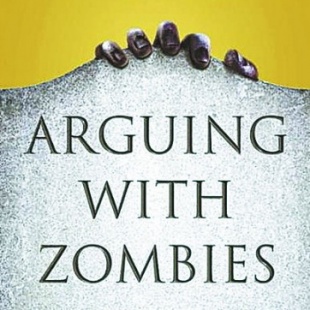Krugman argues against 'zombies'


Over the past decade, the subject itself has been seen to be in some form of crisis for, in particular, its inability to fully grapple with the global financial crisis and its aftermath.
"A lot of economists did lose the plot-but that's largely because they forgot things they used to know," he says.
"Financial crises aren't new, and we know a lot about how to respond to them. It's just that way too many economists bought into an idealized model of the world in which none of this can happen."
He says the problem is that a lot of economists ignored some of the fundamentals of their own subject.
"There's a famous line from the economist Mark Thoma about how 'new economic thinking' mainly seems to mean rereading old books. Most, not all, of what we need to know is already out there."
Krugman is one of the world's best-known Keynesianists, a follower of the great British economist John Maynard Keynes, who challenged the free-market orthodoxy of the classical economists in the 1930s. Keynes' ideas have had a resurgence since the global financial crisis.
"He envisaged a world very much like where we are now, with insufficient investment demand to use up desired savings and interest rates too low to allow an effective monetary response. Keynesian economics looks more relevant now than it has for three generations," Krugman says.
One of the "zombie" ideas to knock down is that tax cuts, particularly for the rich, generate economic activity. He says those who advocate for them often express nostalgia for a low-tax past, yet he points out that taxes for the rich in the US in the 1950s were above 90 percent. He also doesn't believe they are electorally popular.
"The public doesn't support tax cuts for the rich. The polling clearly shows that people want the rich to pay more. But voters can be swayed by other issues, especially those that involve race and social change, which the right have exploited," he says.
He believes that instead of tax-cutting, the US should learn lessons from China, which has built the most extensive high-speed rail network in less than a decade, and make investments in infrastructure a priority, particularly with interest rates being at a historic low.
"Of course. Investors are practically begging America to borrow and invest. We should just do it," he says.
Despite having a background as an international-trade economist-that is for what he won his "Swedish thingie", as he refers to his 2008 Nobel in the book-he does not believe trade policy is as important as some people think.
"The truth is that trade isn't that important in large part because previous trade agreements have made it fairly clean," he says.
"One odd thing is that there really isn't much protectionist clamor (from the public)."
With China's launching of initiatives such as the Belt and Road and the Asian Infrastructure Investment Bank, some have expressed concern that this is a challenge to the Washington-based order dominated by the International Monetary Fund and the World Bank.
Krugman believes that, with there being a number of rising economic powers, not just China, a US-dominated economic system is untenable, anyway.
"That ship has sailed. Maybe 10 years ago there was a chance of creating a sort of co-dominion with the European Union to replace the Pax Americana. But at this point it's a multipolar world. Deal with it," he says.
Krugman also does not think that when, or if, China overtakes the US as the world's largest economy, it will be the momentous event that some assume.
"By some measures, China is already a bigger economy. There won't be a day when we suddenly say, 'Oh my God, we've been overtaken.' It comes back to what I said before. US power is already much less than some Americans seem to think it is. Time to get over our delusions of grandeur," he says.
Krugman is concerned about the global economy, regardless of the impact of the novel coronavirus epidemic, because he fears policymakers no longer have the tools to deal with a recession.
"Sooner or later, something will go wrong. The coronavirus could be that event, but if it isn't, something else will come along. And the big problem is a lack of ammunition. Central banks don't have remotely enough room to cut, and fiscal policy is paralyzed by ideology in much of the advanced world. So, we're very vulnerable," he says.
Krugman makes no secret of the fact he would like a Democrat to win the presidential race and defeat the "zombie" ideas that he believes have dogged US politics in recent years.
"Most of the Democratic candidates have been pretty good at avoiding zombies. My guess is that we'll see some significant rethink of policy if any Democrat wins," he says.
Arguing With Zombies: Economics, Politics and the Fight for a Better Future by Paul Krugman (W W Norton& Company)
Contact the writer at andrewmoody@chinadaily.com.cn
- Illustrated youth book series on China's history of science, technology published
- Book paints a brave picture for children
- Chinese books featured at Bangladesh's national book fair
- London Book Fair cancelled over coronavirus fears
- Virus prevention manual translated into Persian, made free to download





































